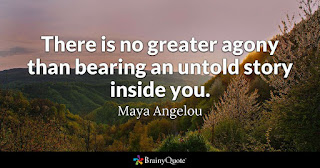May I see my own limits with compassion, just as I view the limits of others.
Roshi Joan Halifax
A limit is defined as “a point or level beyond which something does not or may not extend or pass, or a restriction on the size or amount of something permissible or possible.” (Google dictionary). Limits are often the boundaries that we have set for ourselves. And hopefully we know when we have reached our limit.
What happens when we reach the limit? Are we okay with it or do we decide to push a little further, try the boundary a bit more? At some point in time we decided what our limits might be and occasionally we do push and try a bit harder to test and see if it can go further. If we push too far do we snap? Limits are a place where we can also find comfort as we realize that we have done all we can, pushed as far as possible.
Once in a class where we were studying non violent crisis intervention we were all asked to pick a partner, stand across the room from each other and the partner would walk towards the other and when the person reached your personal space, different for each person depending on your comfort level, you put your arm straight out to indicate they must stop. It was a great experiment. Everyone was different. I remember one female had no problem with her partner coming nearly nose to nose, the partner was decidedly uncomfortable because they were out of their comfort zone. It was a simple exercise but one that told us that all our limits were unique.
How do we react when we have reached the limit? With others we are generally understanding and considerate. We appreciate the boundary and we respect it and them for having it in place. Are we as kind and considerate of ourselves? Sometimes, yes. But more often we will have a negative conversation in our own mind about how we should have done it differently or better. We are less kind and understanding of ourselves. We question if we could have done more, spent more time, expended more effort. Surely we could have been better. We are not so kind and compassionate to ourselves. And yet it is important to be gentle and kind. To remind ourselves that it is fine if we could not do more, reach more, see more. It is important to say that it is good to know and stick to the boundary. It is essential to care for the self, without that care how then can we continue to be positive for others.
Limits are beautiful things they are not intended as a tool to denigrate the self but are intended to care for ourselves. And when we reach the limit...we are called to be as kind and compassionate as if it were someone standing physically in front of us and telling them that it is all good.








